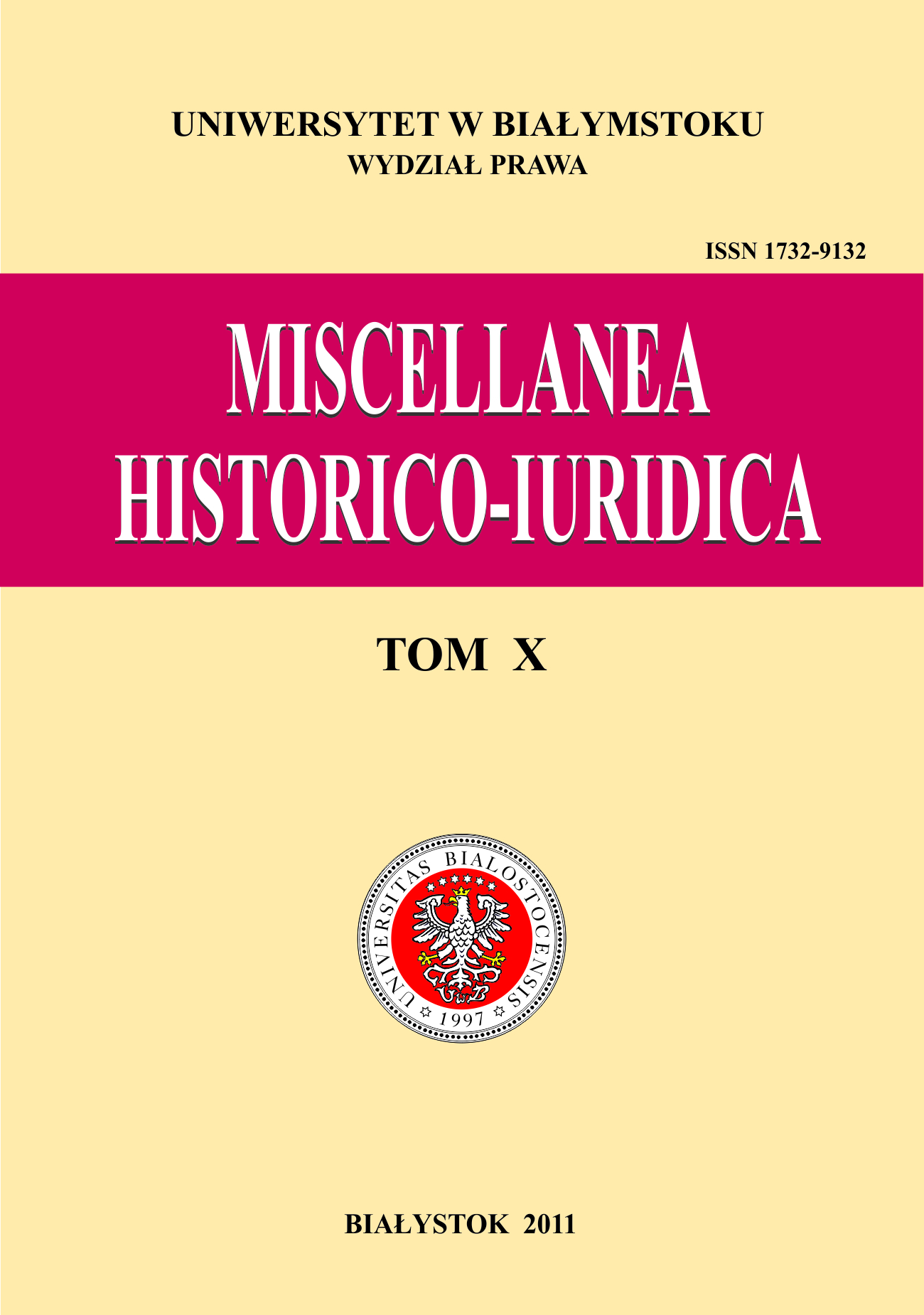Kodyfikacja i unifikacja polskiego prawa czekowego
Keywords:
cheque (or check in American English); Polish Cheques Law; 1931 Geneva Conventions; cheque’s functions; bill of exchangeAbstract
The article presented deals with legal, economic and historical aspects of Polish cheques law. The study is divided into five parts. Three of them concern a general issue of codification and unification of law in reborn Poland after the 1st World War, the international unification of cheques law, as well as they give an outline of form and nature of a cheque (or check in American English) as a type of bill of exchange, and depict various cheque’s functions, such as payment, currency, guarnantee and credit ones. The fourth part comprise three sections: the state of cheques law at the first period of the Second Republic of Poland (1918–1924); the Polish cheques law – a decree passed by the President of the Republic of Poland (14th November 1924), and finally the Act of Cheques Law – a bill enacted by the Polish Parliament (28th April 1936). The activity of the Polish Commission of Codification is regarded as the most important for legislative results in this branch of law. The attempt of international simplification and unification of law relating to cheques took place in Geneva (1931). On 19 March 1931 three conventions concerning this matter were signed: 1) the Convention providing a Uniform Law for Cheques (with two annexes and a protocol); 2) the Convention for the Settlement of Certain Conflicts of Laws in connection with Cheques (with a protocol); 3) the Convention on the Stamp Laws in connection with Cheques (and a protocol). Poland is of part these conventions and the Polish Cheques Law of April 28, since 1936 still is in force without essential changes, is consistent with these regulations.







